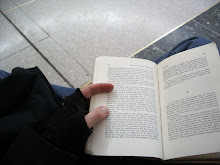What else is left to do?

It pains me to have to write another one of these. I fear this will not be the last.
Ephraim Brown was sitting on a fence during a party when an exchange of gunfire between supposed gang members erupted. A stray bullet found its way into the boy's neck, extinguishing his life and his potential. Ephraim was only eleven years old; he is now another martyr in the crusade to rid the world of criminals without addressing the motivators of crime.
The death of this boy, along with the deaths of every youth by violent means, be it gang-related, individually motivated or state-sponsored, has made for another conversation piece among those of us who have never experienced the loss of a close friend or relative in such a manner. Many of us find ourselves sitting at home, swallowing whatever our mass media barons spoon-feed us on the tragedy of this loss, the merits or absurdities of gun control, the significance of police presence, the need for harsher punishment, and so on, and so forth, and pass judgment accordingly, with little or no appreciation of the situation at hand and the events leading to this seemingly senseless act.
Your trusted sources of information will never tell you how and why these individuals had pistols in their hands, nor how they learned to settle disputes with bullets, nor subsequently why young Ephraim Brown is dead, for, if they did, your perceptions of the market economy, of the rule of law, of society in general will all be turned on their ear. For some of you, what I am about to say may seem trite, as I trust you've seen me rehash this argument over and over, but most of us still don't get it, so I am forced to say it yet again:
As far as I'm concerned, arguments favouring gun control, police presence, harsher penalties all bypass the issue at hand: the culture we've created. We cry out for tighter control of weapons, but don't ask why we have these instruments whose sole purpose is to maim or kill. We cry out for a larger police presence and tougher sentencing, but do these actually deter would-be criminals?
We may pride ourselves on the rule of law, but, as you business folk can attest, the bottom line is the bottom line. Guns have been as vital to the procurement of narcotics as they have been to the procurement of the raw materials in our everyday consumables. There is a market for drugs; similarly, there is a market for guns - there is also a market for stories of tragedy... what would our media barons do without being able to scare us with these grim tales? As long as criminal behaviour remains lucrative, we will continue to lose souls such as young Ephraim Brown.
Our market economy, with the promise of individual riches, has supplied the concrete and rebar for the barriers we construct to detach ourselves from each other. The notion of "every man for himself" - you can draw your conclusions as to why I made reference to the male - is killing us. To most of us, Ephraim Brown is a face we saw on the television or in the newspaper with a short blurb attached to it. To his parents, though, he was a son; to his peers, a friend, a brother. Imagine pointing a firearm at a rival gang member, or an enemy combatant, or a bystander: instead of searching for reasons as to why you should extinguish the life you see before you, imagine what it is that binds you to her or him. Would you shoot your sister? your brother? your friend? your father or mother?
Until we get our collective act together, we will continue to see stories such as this one, the war drums will continue beating, and mother and fathers will continue to have to lay their children to rest. We all lost Ephraim Brown, just as we all lost Jordan Manners earlier this summer, just as we all lost Jane Creba on that fateful Boxing Day, just as we all lost our brothers and sisters who don't return from the battlefield, just as we all lost those who aren't worthy of being headline news. We are all responsible for the loss of each and every one of the aforementioned souls.
Ephraim, I've said this to others, and, sadly, I must say this to you: may you one day rest in peace.





